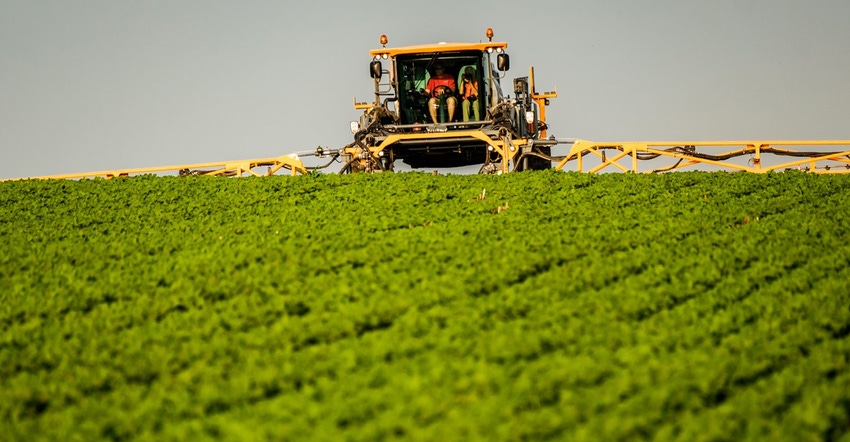July 9, 2019

Farmers will have a new foliar fungicide for corn and soybeans for the 2020 growing season. BASF recently received EPA registration for Revysol, the first fungicide to use the active ingredient isopropanol azole. The company says this active ingredient provides fast-acting and long-lasting disease control for a broad range of crops and disease combinations.
For corn, it’s product name will be Veltyma fungicide. BASF says it provides excellent control of major corn diseases including gray leaf spot, northern corn leaf blight, tar spot and southern rust. Iowa State University research in 2018 on corn treated with Revysol showed it outperformed other fungicides in suppressing gray leaf spot when applied at the VT-R1 stage of corn growth.
For soybeans, Revysol’s product name will be Revytek fungicide. BASF says it gives excellent control of frogeye leaf spot, septoria leaf spot and soybean rust. “Revysol fungicide is the result of years of research,” says Paul Rea, senior vice president of BASF. “It’s designed to meet the highest level of regulatory standards while helping growers manage their toughest crop disease challenges.”
Faster-acting, more effective
Revysol offers several improvements over DMI fungicide products, Rea says. Revysol can be applied on a wider variety of crops including corn, soybeans, grapes, potatoes and sugarbeets. It has faster fungicide uptake by the plant, leading to immediate disease-protective action. Quicker absorption by the plant provides a quick rain-fast advantage and low water solubility, allowing the active ingredient to move through the plant for longer residual activity.
Revysol also has curative activity, so post-infection applications made prior to symptoms developing can help stop the disease from progressing and save yield.
“Revysol fungicide will give growers the confidence to manage disease and resistance effectively while reducing their exposure to weather-related risks,” says Paula Halabicki, BASF technical marketing manager. “This treatment offers longer residual properties than its competitors and protects against the effects of weather conditions like drought, heat, hail and frost.”
Herbicide label changes
BASF also announced in June it’s Zidua SC herbicide received new label changes for extended use in the 2019 season. The label change extends the postemergence application stage in soybeans from the V3 to V6 growth stage to give growers an expanded application window.
With rain-delayed soybean planting across the Midwest in 2019, growers need better, more reliable options for postemergence residual herbicides. The Zidua label extension through V6 gives growers more weed control options for this stage of growth and additional time to apply their postemergence herbicide.
Zidua SC helps by providing control of weeds and grasses that are resistant to ALS inhibitors, glyphosate, triazines and ACCase herbicides. Adding a second effective herbicide such as Zidua to postemergence applications also helps manage resistance for the future. Research shows that growers using more than two modes of action in the same tank are much less likely to develop resistant weeds than those using less than two effective herbicide modes of action.
Source: BASF, which is responsible for information provided and is wholly owned by the source. Informa Business Media and subsidiaries aren’t responsible for content in this information asset.
You May Also Like




